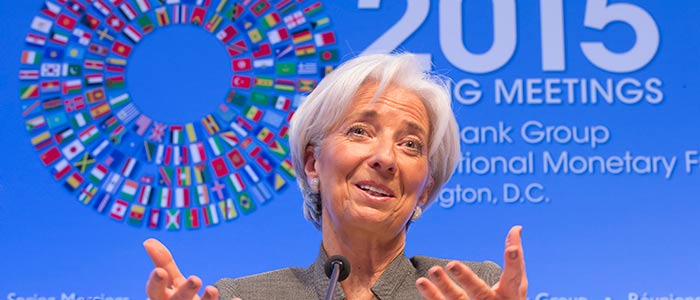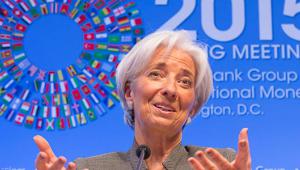WEb_IMF_ChristineLagarde_17169021875_5ac675797e_o.jpg

Christine Lagarde. Credit: IMF Staff Photo/Stephen Jaffe
Speaking in Toronto today, Lagarde highlighted that despite the wide-ranging progress that globalisation heralded, its unintended side effects have created losers too, who should not be left behind.
She pointed to low-skilled workers who have seen their wages fall as the pool of workers has grown, and local industries that have closed down in the face of overseas competition.
“And lastly, growing inequality in wealth, income and opportunity in many countries has added to a groundswell of discontent, especially in the industrialised world – a growing sense among some citizens that they ‘lack control’, that the system is somehow against them,” she stated.
Stressing that such concerns need to be addressed, she set about proposals as to how governments might work to keep the benefits of globalisation while preventing the “dislocation and hardship” that has so far been part and parcel of the process.
Firstly, she urged governments to establish a “positive environment for growth”, centred on her “three-pronged approach” to policy, that covers monetary, fiscal and structural measures.
But governments must also do more to support greater fairness, she continued, by stepping up support for the low skilled, strengthening social safety nets, and boosting economic fairness.
The latter included addressing the lack of competition in some markets, such as pharmaceuticals and social media, and clamping down on tax evasion and avoidance.
“These measures can help create a positive feedback loop: stronger, more inclusive growth reduces economic inequality and increases support for further reforms and openness,” she stressed.
She spoke out against protectionism and, in a dig at figures like US presidential candidate Donald Trump, highlighted her concern over “politicians promising to ‘get tough’ with foreign trade partners through punitive tariffs or other restrictions on trade”.
“Nowhere are the issues of economic interdependency greater than in the area of trade,” she continued. “A stronger trade engine means more competitive industries that have greater incentives for innovation.”
While describing recent news about multilateral trade negotiations as “disappointing”, she was optimistic about the growth of trade in services and the potential for “plurilateral” agreements among a limited number of like-minded countries.
“History tells us that closing borders or increasing protectionism is not the way to go,” she stressed. “Many countries have tried this route, and just as many have failed.
“Instead, we need to pursue policies that extend the benefits of openness and integration while alleviating their side effects. We need to make globalisation work for all.”











